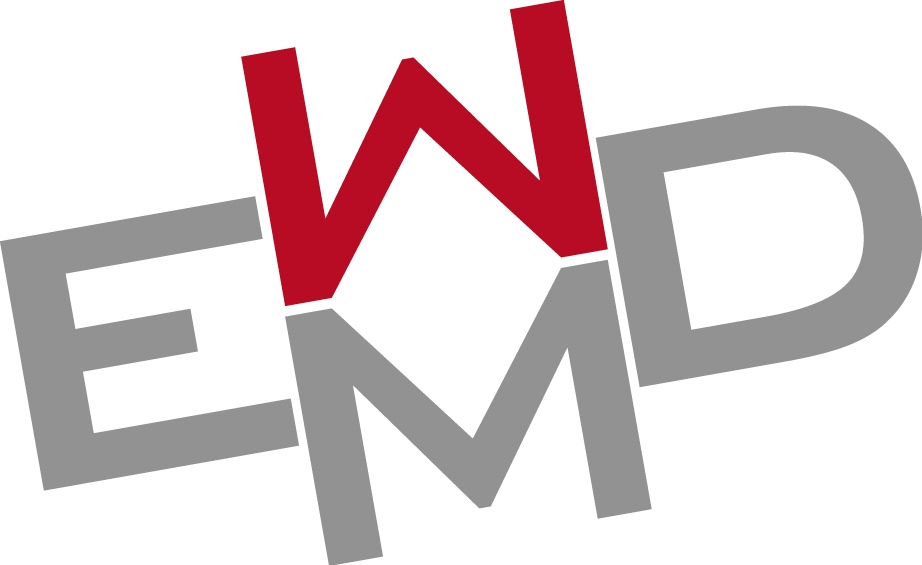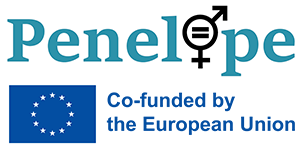

Could you please introduce yourselves?
Paola Ligabue (PL): Born in Reggio Emilia, in the North of Italy, my interests are international topics and environments, for relationships and gender issues. A passion for foreign languages, books and travels. Widow, three daughters, two grandchildren, one sister, many nieces, and nephews. I have run a translation company for over 35 years, also involved in event organization, recruiting and US FDA consultancy. I sold my company in 2016 and restarted an individual firm in these two latter fields. I am EWMD member since 2013. I am also involved with CO.A.GE. an umbrella coordination of 12 gender associations in Reggio Emilia, whereby we organize events, address issues to the local public entities and participate to the city life.
Nadine Nembach (NN): Founder of N² Consulting & Training. As an international expert for leadership and customer delight, I travel the world for my customers. 34 countries and 68 nationalities so far. Passion, energy and fun are prerequisites for this, and therefore some of the most important tools I use. My background is a diploma in psychology. Being a trainer, coach, facilitator, and speaker, I ease my customer’s path since more than 20 years on the way to (re-) discovering their golden thread. I am also board member of the European Women on Boards (EWoB) network and mentor for Ouissal.
Could you describe your network in a few words?
PL: I have a huge network, composed of people I know personally due to my sports activities (of the past), my family’s activity and to my attitude to get to know people easily, so I have a wide network of pen friends, customers, suppliers, friends and virtual contacts. If you mean EWMD – as network – I can say that this is the best place for me to be, as I would have never joined a “local” association/network, without the international flavor, and for sure never joined a non-professional network.
NN: EWMD is an international nonprofit network established in 1984 by women for women and men in management. Our main goal is to increase women’s visibility and participation in higher positions in business and society. EWMD believes that quality levels of management can be increased and enriched through more female presence and diversity. We believe that women have skills that are strong assets for successful organisations and want to leverage these strengths. Therefore, we enhance the professional and personal development of our members by offering them an international community for a mutual exchange of knowledge, experience, and ideas.
Could you give us some facts and figures, or a description of the status-quo related to the situation of gender equality in your network? What are the challenges encountered?
PL: The challenges in my country/area are many as to gender equality. I personally never felt “discriminated” as I’ve always been a consultant and from this perspective, companies never treated me in a bad way. I never had the feeling I couldn’t get a job because I am a woman. In many cases of my friends and women I know, they underwent bad moments, especially when coming back after a maternity leave, they found their positions occupied by someone else, or women with a perfect language knowledge relegated to a secretary work, and men – without even knowing any languages – sent around the world to sell products or services. The pay gap is also another issue that gender associations are trying hard to fight and to address.
What levers do you see possible to address these challenges or to improve the situation you just described? Where do you see (women) networks playing a role in the process?
NN: Several levers can be used to address these challenges, such as implementing legal reforms to protect women’s rights, providing better access to education and training, promoting gender-inclusive workplace policies and practices, and creating awareness campaigns to challenge harmful gender stereotypes. In this context EWMD worked on the Brussels Declaration, together with other 8 gender associations, which is aiming to increase gender equality throughout Europe. This initiative strives for implementation and monitoring of gender equality in our political, institutional, economic and social life.
There have been a lot of improvements during the past decade. Still, the COVID-19 situation has shown us how quickly we revert to old role models and habits. We need to find a way to check what is missing through an analysis of cause and effect, to gather existing directives and monitoring systems, to improve them and connect them with a working sanctioning framework to make sure implementation is happening and follow-ups are in place. We invite you to check out more about this initiative and the launch event in Brussels in October 2022 on our website (Brussels Declaration – European Women’s Management Development International Network (ewmd.org).
As we can see, Women’s networks can play a significant role in promoting gender equality by providing professional and social support, offering training and development opportunities, advocacy on behalf of women, and collaborating with policymakers, employers, and other stakeholders to create meaningful change.
Do companies in your network face recruitment difficulties? Would you say that efforts to create (more) gender equality lead to solutions to overcome these difficulties and why?
PL: As a professional recruiter, I deal with companies and their requests every day. I encounter many difficulties and a big challenge to find the right profiles for the right companies. Some job positions are really hard to find. I have to say that the most difficult positions don’t involve women, as they are mainly manual technical jobs and women don’t apply for them. I am talking about technicians for the installation of alarm systems, or technicians for the maintenance of heating and cooling systems. For all the other positions, women are always welcome, and they are missing in the same way as men do, especially ICT, for example.
Do companies in your network face recruitment difficulties? Would you say that efforts to create (more) gender equality lead to solutions to overcome these difficulties and why?
PL: I think that companies in Italy and in my network are aware of gender equality rules, and some stricter rules were enforced recently. We have the gender equality check, which has to be carried out by companies above a certain number of employees, and the Gender Certification, which would allow companies to get a better score in case they work with the Public Administration Entities. However, trainings, webinars and seminars should always be carried out, because the attention should never be lowered on these topics, as sometimes I have the feeling we’re going back!
Would you say working on gender mainstreaming can bring solutions to other challenges you observe (retaining female human resources in organisations by addressing issues such as equality in wages, work-life balance, fight against sexist acts, populating rural areas, etc.)?
NN: Yes, gender mainstreaming can bring solutions to several challenges related to promoting gender equality, including retaining female human resources in organizations. By addressing issues such as equality in wages, work-life balance, and addressing sexist acts, organizations can create a more inclusive work culture that benefits both men and women. Additionally, gender mainstreaming can also help address challenges such as populating rural areas by promoting policies that support the economic empowerment of women in rural areas. Overall, gender mainstreaming can be a useful approach to addressing various challenges related to promoting gender equality.
Could you please describe why gender equality is important for you personally and/or for your network?
PL: Gender equality is extremely important. Working together, women and men can give a better contribution, a more complete vision to everything they do. They can improve our society and find the right solutions together. Women should be much more consulted on every topic and with their input we can probably build a better world.
How would you describe the added value brought by a woman leading an international network? What are your challenges but also what are the opportunities?
NN: The added value of having a woman leading a cluster/network is that women tend to bring a unique perspective to leadership, which can lead to new ideas, approaches, and strategies for managing the cluster. Women can also bring diverse backgrounds and experiences that can contribute to a more inclusive and collaborative work environment. Opportunities for women cluster managers/presidents include the ability to serve as role models for other women in the industry, to foster a more equitable and diverse culture within the cluster and to bring new business opportunities through networking and collaboration.
The perspective of a woman enabling policy change involves advocating for policies that promote gender equality, such as equal pay, flexible working arrangements, and family-friendly policies. Women can also promote initiatives that support the growth and development of women in the industry, such as mentoring and leadership training programs. Overall, women in leadership positions can have a positive impact on the industry, promoting innovation, diversity, and equality.
What would be your closing word as a message on advancing gender equality approaches through companies/(women)networks?
PL: We need to stand up and be united. The more we are, the more we count, and we need to create alliances with all our “sisters”. Sisterhood is an approach we have to learn and apply everywhere.
NN: Advancing gender equality is crucial for creating a just and inclusive society. To make progress towards gender equality, companies, women’s networks, public authorities, and governments all have an important role to play. It is essential to recognize and address the systemic barriers that prevent women from reaching their full potential and to promote diversity, equity, and inclusion in all aspects of society. Only by working together and taking concrete actions can we create a world where gender equality is truly realized.


